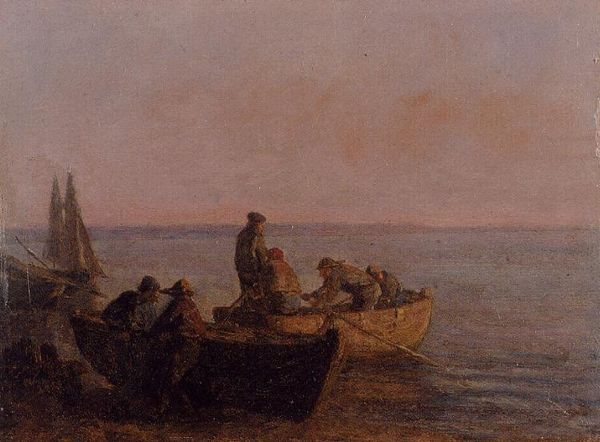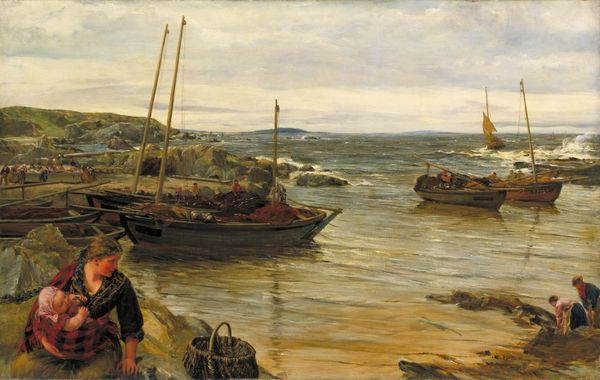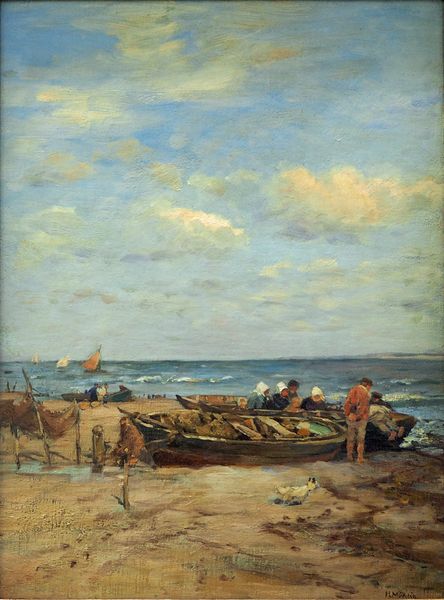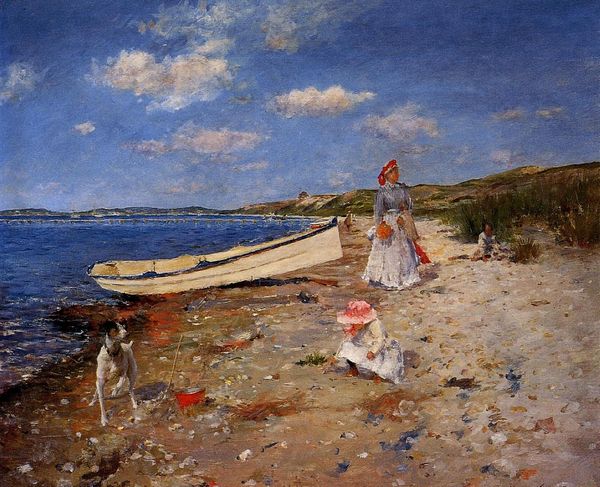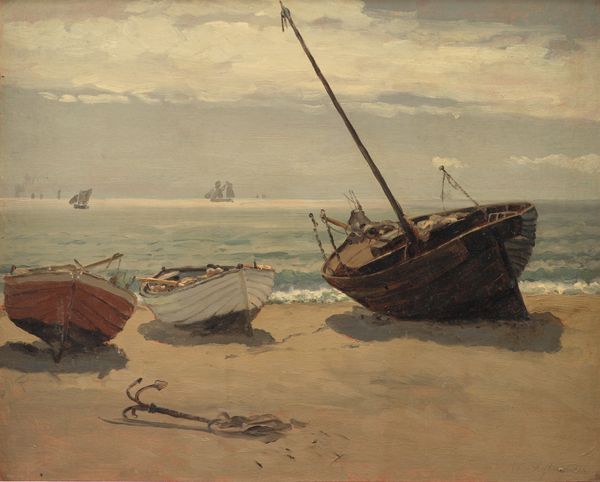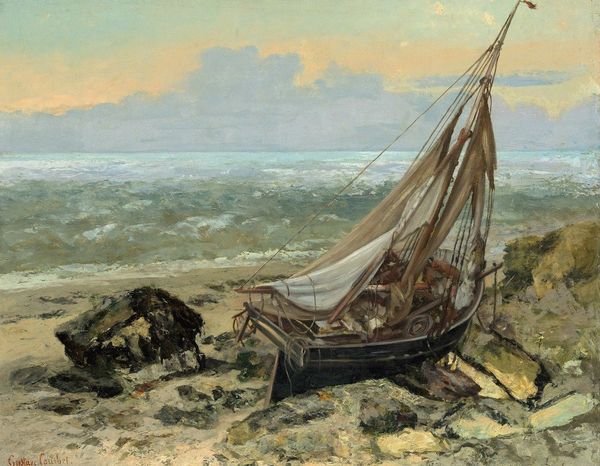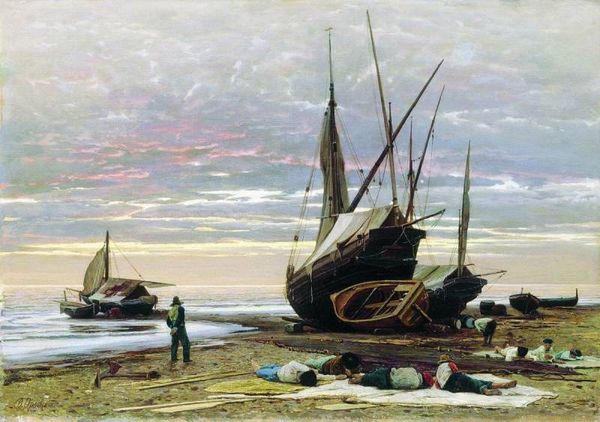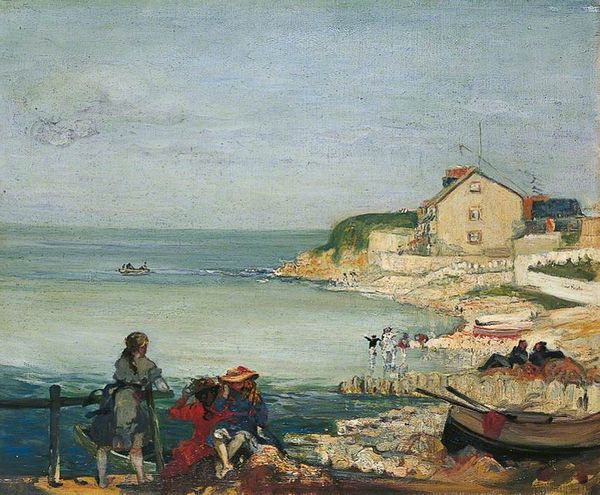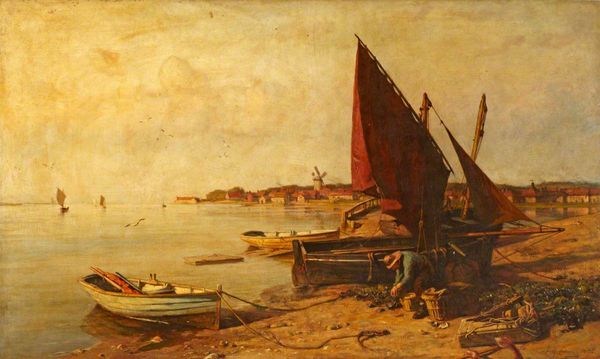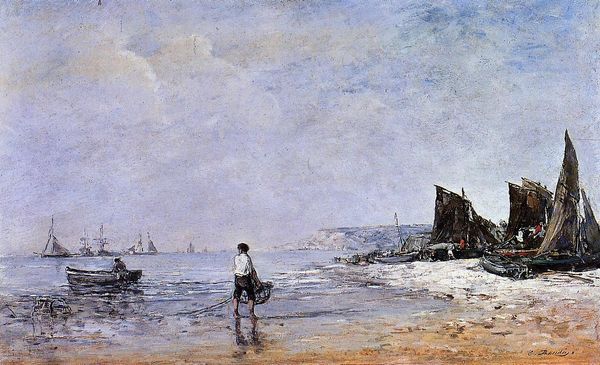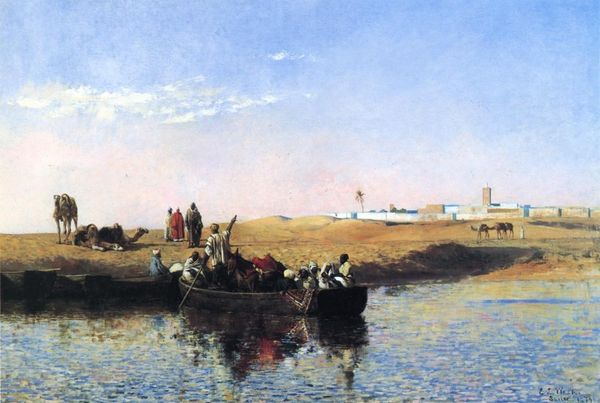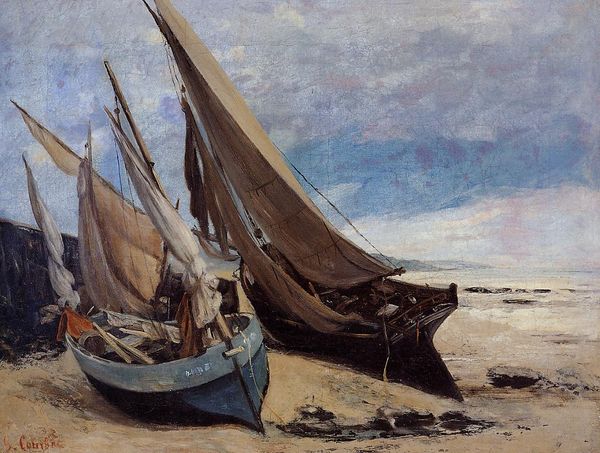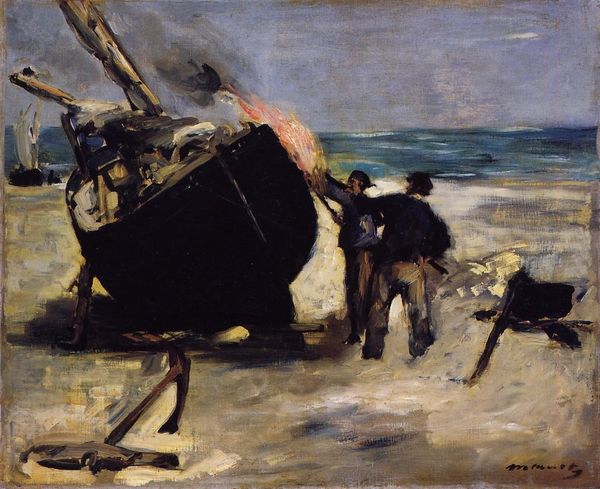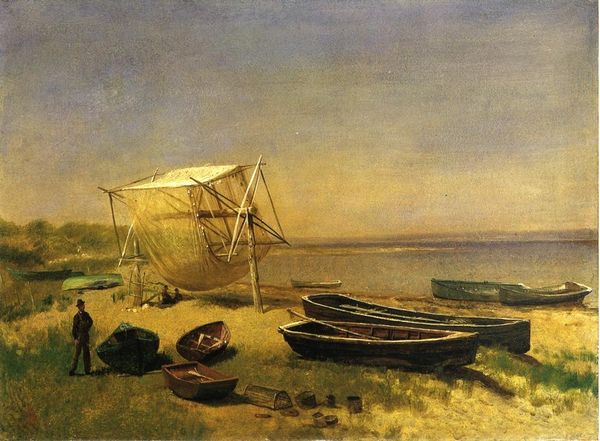
painting, plein-air, oil-paint, impasto
#
boat
#
painting
#
impressionism
#
plein-air
#
oil-paint
#
landscape
#
impressionist landscape
#
figuration
#
possibly oil pastel
#
oil painting
#
impasto
#
genre-painting
#
realism
Copyright: Public domain
Curator: Looking at this piece, I’m just struck by its raw energy, that palpable sense of place…it just hums with life, doesn't it? Editor: It certainly does. This is Toulouse-Lautrec's "Fishing Boat," painted around 1880. He created this seascape, this glimpse of everyday life, with oils and in plein air, meaning he worked outside, directly in front of the scene itself. Curator: Ah, that explains the immediacy. There's this feeling of transience, the figures caught mid-task, mid-thought, under that boundless sky. What symbols do you detect? Editor: The boat itself. In almost all cultures, the boat signifies a journey. Lautrec’s boat, hauled onto shore with great effort, might reflect more than simply work. Look at how worn, perhaps damaged, it is: is the journey safe? Or is the work needed just to repair its damage? Curator: I see it…and then, those huddled figures, seemingly exhausted or lost in contemplation beside the boat. A dog rests on the ground. They’re not idealized, they're…real. This speaks volumes about resilience. Editor: Absolutely, it mirrors themes of labor and reliance on the natural world. But note the vivid slashes of red in the clothing, juxtaposed with the somber hues of the boat and water; I find it rather psychologically complex: they give life against the dark of existence. Curator: So, color becomes a quiet rebellion? I can almost smell the sea salt, feel the grit of the sand… it’s all so evocative. Editor: It reminds me how much symbolism remains constant. The sea remains a space for both sustenance and reflection, which painters capture over and over. And as they captured it in Lautrec's day, the sea reflected his vision and insight into working men and working conditions. Curator: Ultimately, Lautrec transforms a common scene into something deeply resonant. I'm moved by its beauty and humanity. Editor: A truly effective emblem of a particular time and place, yes; and so much deeper with repeated viewing. Thanks for that point of view.
Comments
No comments
Be the first to comment and join the conversation on the ultimate creative platform.
